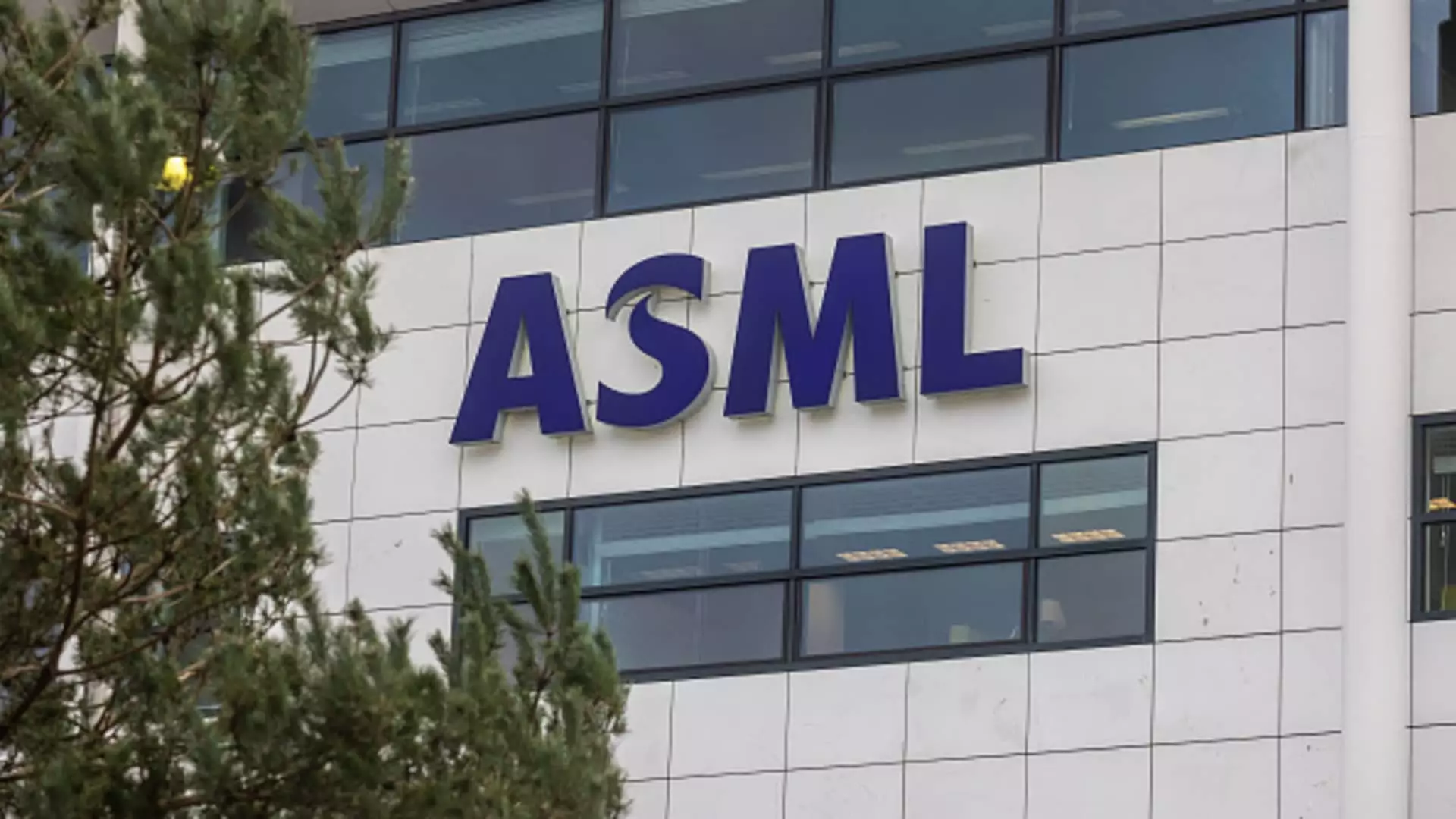ASML, a prominent semiconductor firm, experienced a significant drop in its net sales and net income, falling short of estimates. The company’s stock took a hit, declining by approximately 4.5% in early European trading following the release of its financial results. Net sales were reported at 5.29 billion euros, compared to the expected 5.39 billion euros, while net profit stood at 1.22 billion euros, missing the forecast of 1.07 billion euros. This decline marked a 21.6% decrease in net sales year-on-year, with net income plummeting by 37.4%.
Several factors played a role in ASML’s disappointing financial results. Weak demand for consumer electronics, such as smartphones and laptops, impacted chipmakers that produce semiconductors for these devices. This reduced demand, in turn, led to a decline in the need for ASML’s machinery, such as extreme ultraviolet lithography machines. Additionally, the ongoing economic uncertainties have caused customers to scale back on their orders, leading to a decline in net bookings for ASML’s equipment. The transition in product in 2025 has also contributed to customers holding off on purchases and preserving their spend.
Despite the subpar financial performance in the first quarter, ASML reaffirmed its outlook for 2024, projecting net sales to be similar to the previous year. The company reported net sales of 27.6 billion euros in 2023 and expects the second half of 2024 to be stronger than the first half. ASML CEO, Peter Wennink, emphasized that 2024 is a transition year, with continued investments in capacity ramp and technology to prepare for the industry’s expected recovery.
ASML’s optimism stems from the increased production capacity of major chip manufacturers, such as Taiwan Semiconductor Manufacturing Co., Samsung, and Intel. These companies are expanding their operations in America, supported by funding from the U.S. CHIPS and Science Act. ASML anticipates a convergence of factors by 2025, including new fab openings, strong secular trends, and an industry upturn, which will drive growth in demand for its equipment.
An issue that ASML has yet to fully address is the impact of export restrictions on its business. The Dutch government implemented curbs on the export of advanced semiconductor equipment, including ASML’s machinery, in response to U.S. pressure. Despite these restrictions, ASML noted that sales to China accounted for a significant portion of its total sales in the first quarter, increasing from the previous quarter. The company previously estimated that export restrictions would affect a portion of its sales to China, but the exact impact remains to be seen.
ASML’s recent financial results reflect a challenging environment influenced by various factors such as weak consumer electronics demand, economic uncertainties, product transitions, and export restrictions. While the company maintained its outlook for 2024 and highlighted optimism regarding increased production capacity and industry recovery, it will be crucial for ASML to navigate these challenges effectively to sustain its growth and profitability in the long term.


Leave a Reply